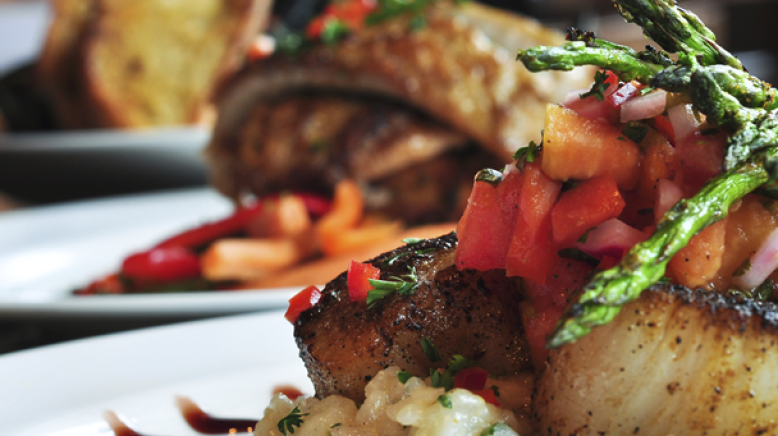
More than 10,000 new jobs are set to be added to the UK’s growing food and farming industry as a network of new food hubs takes shape across England, Environment Secretary Elizabeth Truss has announced.
Of the 17 government-backed Food Enterprise Zones (FEZs) three are in Lincolnshire. They will help to drive up tourism, attract investment and add millions to our growing rural economy.
Championing celebrated British foods, the hubs have been awarded a share of £830,000 funding to help fast-track the expansion of food and farming businesses in the regions.
Greater Lincolnshire's hubs are at Europarc in North East Lincolnshire, Holbeach and Hemswell.
Speaking at the first meeting of all 17 FEZs last week (2nd July), Ms Truss said: “Our food and farming industry is an economic powerhouse, now worth over £100 billion a year and employing one in eight people.
“We want to build on that so food and farming becomes a top destination for high-flying graduates, is as prestigious as medicine, as fun and stimulating as the gaming industry and as cutting-edge as London’s Tech City.
“Food Enterprise Zones will unleash food entrepreneurs, bringing together researchers, farmers, manufacturers, distributors and retailers so they can improve productivity and spark new ideas off each other all the way along the supply chain from farm to fork, from lab to lunch.”
Mark Tinsley, the Greater Lincolnshire LEP board member who leads on agri-food, commented: “Our strategy is to double the value of our food and farming industry in Lincolnshire by 2030. To achieve that we not only need to help our existing businesses in the food sector, we also need to encourage new business.
“The Food Enterprise Zones are strategically located to allow that expansion, whether it be Holbeach situated alongside the University of Lincoln’s National Centre for Food Manufacturing and in the middle of the nationally important fresh produce and flower area, in West Lindsey – an excellent site in the middle of the county – or in Grimsby in the heart of our fish processing industry.
“To have a co-ordinated plan in each zone working with all parties involved is crucial to encourage the expansion and make it a success. We are grateful for DEFRA’s encouragement and help.”
Professor Val Braybrooks MBE, Dean of the Holbeach campus, University of Lincoln, and the National Centre for Food Manufacturing, added: “We're delighted that South Holland has been designated a Food Enterprise Zone. Greater Lincolnshire has the UK's largest and most progressive agrifood sector with well developed supply chains which South Holland exemplifies and which the Food Enterprise Zone will build on.
“The National Centre for Food Manufacturing at Holbeach, part of the University of Lincoln, serves as a centre of excellence for education, training, research and development for the agrifood sector regionally and nationally, supported by major companies and drawing on a rich range of academic expertise.
“The new Food Enterprise Zone will create exciting opportunities for the growth fuelled by innovation in this crucial sector, and the University of Lincoln looks forward to playing its part in this.”
Food and farming is the biggest manufacturing sector in Britain, worth more than cars and aerospace combined. In 2013 entrepreneurs set up 30,000 new food and drink businesses generating thousands of jobs in the sector, and the industry’s continual innovation is bringing 16,000 new products to the market each year—more than France and Germany combined and second only to the US.
Exports of UK food and drink are also booming with almost £19 billion worth shipped to 214 countries and territories around the world. Since 2010 the UK government has opened more than 600 new international markets supporting more businesses to sell their produce abroad.
